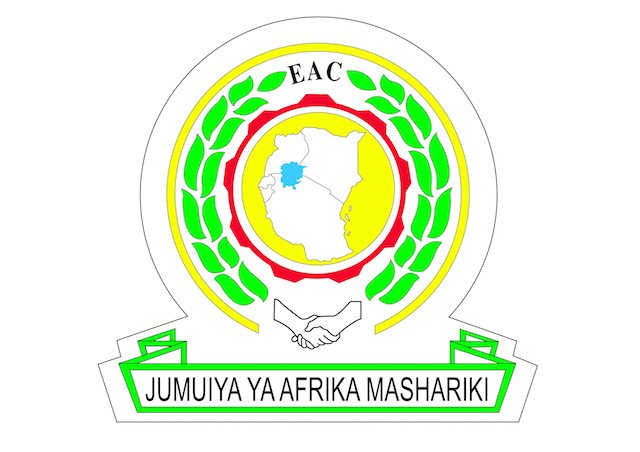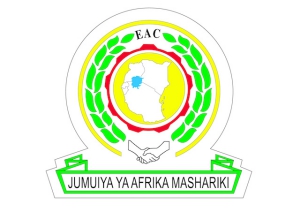
Posted in Press Release
 EAST AFRICAN SCEINCE AND TECHNOLOGY COMMISSION
EAST AFRICAN SCEINCE AND TECHNOLOGY COMMISSION
LAUNCH OF CALL FOR PAPERS FOR THE EAST AFRICAN JOURNAL OF SCIENCE, TECHNOLOGY AND INNOVATION
The East African Journal of Science, Technology and Innovation (EAJSTI) will launch its first call for papers for publication on 3rd April, 2019 in Kampala Uganda.
EAJSTI is designed as a multidisciplinary, open access and peer review journal, publishing original research of relevance to the East African Community (EAC) region, covering basic and applied research in science, technology and innovation.
The goal of the Journal is to enhance, advance and disseminate scientific, technological and innovative knowledge that supports regional socio-economic development. The objectives of the journal include:
- Supporting the development of evidence based policies;
- Providing an avenue for disseminating scientific research and technological findings to researchers, professionals, industry and other stakeholders in the EAC and beyond;
- Increasing the number and quality of scientific publications from the EAC Partner States;
- Advancing and opening up the new frontiers for further research in science, technology and innovation domains;
- Enhancing visibility of the regional scientific and technological research, and;
- Promoting international recognition of local researchers and professionals.
It is anticipated that EAJSTI will, among other things, provide a strong forum, linkage and network for exchange of scientific knowledge, technology and innovations that are being generated from Universities, Research Institutions and Industry in East Africa and globally. The EAJSTI will further enhance the sharing of knowledge to its readership as it continues to increase and develop a rich database of research output in science, technology and innovation in a wide thematic area. Given the scarcity of regular and reliable scientific journals in production within the East African region, the EAJSTI will fill this gap and void which is created by the of absence of research outputs available from well recognized and reputable peer-reviewed journals. The EAJSTI will endeavour to support the world-renowned scientists, upcoming scientists and graduate students from both the East African region and globally to continue to publish scientific outputs, new technologies, and innovations.
The journal will invite articles in the areas of: Agriculture; Food Security and Rural Development; Natural Resources and Environmental Management; Health and Wellbeing Science; Infrastructure; Energy and Industrial Development, and; Information Communication Technology. The journal has been established through collaboration between the East African Science and Technology Commission (EASTECO), the Inter-University Council for East Africa (IUCEA), and the Nelson Mandela African Institute for Science and Technology (NM-AIST). The call for papers will be published in major newspapers in Partner States, and on the websites of the partnering institutions.
The launch will be preceded by inauguration of the editorial board, which comprises senior scientists from academia, research institutions and the industry. The ceremony will be attended by senior officers from Ministries of East African Community Affairs (MEACAs) in the Partner States, Ministry of Science Technology and Innovation of Uganda, members of the EASTECO Governing Board, and other stakeholders in Science, technology and innovation ecosystem in the region.
For more information, please see the journal website: http://eajsti.org
Note to Editors:
The East African Science and Technology Commission (EASTECO) is a semi-autonomous institution of the East African Community (EAC), mandated to coordinate and promote the development, management and application of Science and Technology in Partner States to support regional integration and socio-economic development. Among other responsibilities, the commission promotes the exchange and utilization of scientific information, and supports the dissemination of research and development findings in Partner States. This is in line with the Treaty for the Establishment of the East African Community which recognizes the fundamental role of science and technology in economic development and stipulates, in the Chapter 16, Article 103, that the community shall promote cooperation in the development and application of science and technology within the Partner States. Article 80, on industrial development further reinforces the need for development of science and technology to accelerate socio-economic development in the community
For more information, please contact the Managing Editor of the Journal through email: This email address is being protected from spambots. You need JavaScript enabled to view it.

Posted in Press Release
East African Court of Justice, Arusha, 26th March, 2019: The First Instance Division decided that the government of Uganda violated the East African Community Treaty and the Customs Union and Common Market Protocols by imposing extra excise duty law over imported cigarettes within East Africa. This was a decision in the case filed by the British American Tobacco (BAT) Ltd Uganda, challenging the Government of Uganda over the Excise Duty (Amendment) Act of 2017, that was assented to by the President of Uganda on 13th June 2017,with a commencement date of 1st July 2017 and the Act was published in the Uganda Gazette on 30th June 2017. The government of Uganda through the Uganda Revenue Authority issued tax assessment notices on the basis of the above amendments requiring the BAT (Applicant) to pay excise duty for its cigarettes manufactured in Kenya and imported to Uganda. The tax assessment initially categorised the cigarettes as locally manufactured but subsequently re categorised the same as imported attracting excise duty at the higher rate for imported cigarettes, i.e. Ushs 75,000 per 1000 sticks of ‘soft cup’ and Ushs 100,000 per 1000 sticks of ‘hinge lid’.
The court further ordered that implementation of the provisions of Sec 2(a) and (b) of the Excise Duty (Amendment) Act No.11 of 2017 by misconstruction and wrongful re-classification of the British American Tobacco Ltd Uganda’s Cigarettes as ‘imported goods”, contravene and infringe on Articles 1 and 75 (6) of the Treaty as well as Articles 1 (1) and 15 (1) (a) and (2) of the Customs Union Protocol and Article 6 (1) of the Common Market Protocol.
The Court further ordered that the government’s misapplication of the provisions of the said Act by issuance of the payment registration slips for additional taxes in the sum of Ug shs 325,208,000 for the BAT’s 1,170 packages of soft cap cigarettes is illegal, null and void and the court ordered the gov’t with immediate effect to rescind and withdraw the payment registration slips.
In addition the court ordered the government to ensure the interpretation and application of Excise Duty Act with due regard and in compliance with applicable Community Law and to align the Ugandan tax laws with Community Law applicable to goods from EAC Partner States.
The court exercising its discretion ordered each party to bear its own costs on the basis that this case has canvassed matters of grave importance to the advancement of Community law and EAC intra-regional trade, which would be of significant public interest to across section of stakeholders within and beyond the EAC regional bloc.
The court however did not find any infringement of Articles 6 (d) and (e), 7 (1) (c) 75 (1) and (4) or 80(1) of the Treaty, neither was the alleged infringement of article 4 (5)(2) or 32 of the Common Market Protocol as alleged by the Applicant against the government of Uganda.
The judgment was delivered by Honourable Judges: Lady Justice Monica Mugenyi (Principle Judge), Justice Dr Faustin Ntezilyayao (Deputy Principal Judge), Justice Fakihi A. Jundu, Justice Audace Ngiye and Justice Charles Nyachae.
Notes for Editors:
On 30th June 2017, on 30th March 2017, the Government of Uganda published the Excise Duty (Amendment) Bill No.6 of 2017 in the Uganda Gazette proposing an increase in the rate of excise duty on cigarettes (soft cup) from Ushs. 50,000 per 1000 sticks to Ushs. 55,000 per 1000 sticks. The said rate was to apply uniformly to all applicable tobacco products manufactured within the EAC. The Bill was laid before the Parliament and referred to the Committee on finance, Planning and Economic Development. The Committee held meetings and prepared a report where it was recommended that the Bill be passed into law subject to a proposed amendment introducing different excise rates for locally manufactured and imported cigarettes. On 10th May 2017, the Bill was brought before the plenary, debated upon by Members of Parliament and subsequently passed by the Parliament. The Bill introduced amendments of excise duty on locally manufactured cigarettes (soft cup) to an amount of Ushs. 55,000 per 1000 sticks and Ushs. 75,000 per 1000 sticks for imports. While introducing Ushs 80,000 per 1000 sticks for hinge lid locally manufactured and Ushs. 100,000 per sticks for imported. The Act was assented to by the President of Uganda on 13th June 2017,with a commencement date of 1st July 2017 and the Act was published in the Uganda Gazette on 30th June 2017. The government of Uganda through the Uganda Revenue Authority issued tax assessment notices on the basis of the above amendments requiring the BAT (Applicant) to pay excise duty for its cigarettes manufactured in Kenya and imported to Uganda. The tax assessment initially categorised the cigarettes as locally manufactured but subsequently re categorised the same as imported attracting excise duty at the higher rate for imported cigarettes, i.e. Ushs 75,000 per 1000 sticks of ‘soft cup’ and Ushs 100,000 per 1000 sticks of ‘hinge lid’.
-ENDS-
For more information please contact:
Yufnalis Okubo,
Registrar,
East African Court of Justice
Tel: +255 27 2162149
Arusha, Tanzania
Email This email address is being protected from spambots. You need JavaScript enabled to view it.
http://www.eacj.org
About the East African Court of Justice
The East African Court of Justice (EACJ or ‘the Court’), is one of the organs of the East African Community established under Article 9 of the Treaty for the Establishment of the East African Community. Established in November 2001, the Court’s major responsibility is to ensure the adherence to law in the interpretation and application of and compliance with the EAC Treaty.
Arusha is the temporary seat of the Court until the Summit determines its permanent seat. The Court’s sub-registries are located in the respective National Courts in the Partner States.


 EAST AFRICAN SCEINCE AND TECHNOLOGY COMMISSION
EAST AFRICAN SCEINCE AND TECHNOLOGY COMMISSION